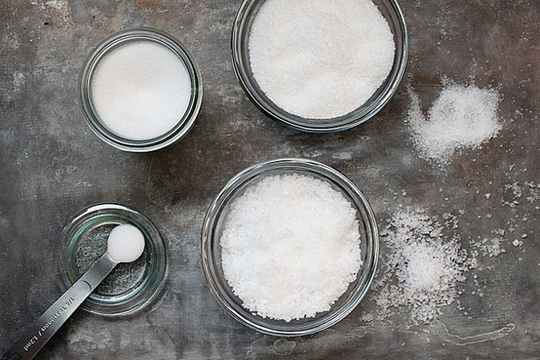Could You Please Pass the Salt

There’s no denying it. Everything tastes better with salt. But for years doctors have instructed us to put our taste buds — and salt shakers — aside in the pursuit of health. Only problem? Turns out they may have been wrong.
A whole slew of new studies have refuted the age old — well, 1904 old — claim that salt leads to high blood pressure, and consequently, heart attacks. One of the most recent being a study released in the American Journal of Medicine that found those with a low-salt diet were four times more likely to die from heart disease than those with a high-salt diet.
In other words, the more salt you eat, the healthier your heart. That’s a complete 180 from the conventional belief, and as a result there’s tons of controversy over whether that study — or any other that touts salt’s health value — should be trusted.
But the evidence in salt’s favor is growing. Substantially. For starters, there’s a solid theory as to why low-salt diets trigger heart disease. When our body doesn’t get enough salt our sensitivity to insulin decreases triggering a stress response in our bodies that affects the hormones that control blood pressure. As a result, if we don’t get enough salt, our blood pressure goes up.
So the next time someone says pass the salt, you may want to add a little yourself. Especially considering it’s not just your heart you’ll be helping. Both our adrenal glands and thyroid need salt to function properly, as well as, our nerves and cells. In fact, salt is essential to our survival. Without, our cells can’t function properly leading to severe muscle cramps, headaches, dizziness and even death.
So sprinkle on that salt. But not just any. The type of salt you use matters.
Traditional table salt is like white bread. It’s refined, which means all of the good nutrients are taken out and a bunch of toxic additives — aluminum silicate, ammonium citrate, sodium ferrocyanide, among others — are added in. As a result, you don’t get the maximum health benefits.
To receive those, you must use unrefined salt, more commonly known as sea salt, which contains a number of vital minerals in addition to sodium and contains no toxic ingredients.
Of course, many people object to the sole use of sea salt due to its lack of iodine. For years, table salt has been fortified with iodine to help prevent people from developing goiters from thyroid issues. Unfortunately, the amount of iodine in iodized salt doesn’t come close to adequately supplying us with our daily intake of iodine. And I would know. I ate plenty of salt and still had a goiter. So you’re much better off using sea salt and taking a daily iodine supplement, which I do.
I personally use Celtic Sea Salt, which has one of the highest mineral contents, and Lugol’s Iodine. And I can’t tell you how much they helped me — especially the Iodine.
If you’re interested in learning more about salt or iodine, I’d suggest picking up one of Dr. David Brownstein’s books. He’s one of the leaders in promoting the health benefits of both salt and iodine.
